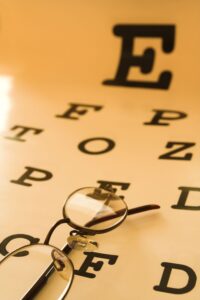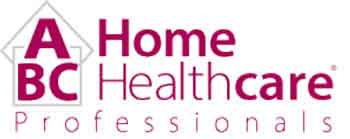During June, which is National Safety Month, we reminded everyone how important it is to keep your home safe. We often think about hazards like loose carpets or cluttered basements. But there’s another crucial safety concern many people overlook – your vision. Poor eyesight can lead to accidents, especially for seniors. So, taking good care of your eyes is essential.
Aging can naturally affect your vision. But there are ways to safeguard your eyesight:
Regular Eye Check-ups
Just like you visit your doctor for routine health checks, remember to schedule regular appointments with your eye doctor too. These check-ups can help detect eye conditions early, such as Macular Degeneration and Glaucoma.
Macular Degeneration affects your central vision and can make it hard to recognize faces or read. Glaucoma, on the other hand, is a group of conditions that can damage the optic nerve, causing vision loss. Symptoms might include red eyes, severe headaches, and vision changes.
Both these conditions often have few early warning signs and progress slowly. But if left untreated, they can lead to severe vision loss or even blindness. A comprehensive eye exam, including dilation, is the best way to catch these diseases early.
You can also check your vision at home using an Amsler Grid exercise. This simple test can alert you to early warning signs of Macular Degeneration or Glaucoma.
Eat for Your Eyes
A healthy diet isn’t just good for your body. It’s also crucial for your eyes. Consider adding these vitamins and nutrients to your meals:
- Vitamin A
- Vitamin C
- Vitamin E
- B Complex
- Riboflavin
- Niacin
- Carotenoids
- Omega-3’s
- Thiamine
You can find these in foods like raw red peppers, sunflower seeds, dark leafy greens, salmon, sweet potatoes, lean meats, beans, eggs, squash, broccoli, and brussels sprouts.
Protect Your Eyes
UV rays from the sun can harm your eyes. So always wear sunglasses when you’re outside. If you’re working on a hobby that might risk eye injury, like woodworking, don’t forget to wear safety goggles.
Know Your Family’s Eye Health History
Knowing your family’s health history can be a powerful tool. If your relatives had vision problems or specific eye diseases, make sure to tell your eye doctor. This information can help them recommend the best ways to protect your eyesight.
Remember, maintaining good eye health can significantly impact your quality of life and safety. So take these steps seriously and keep an eye on your vision!

